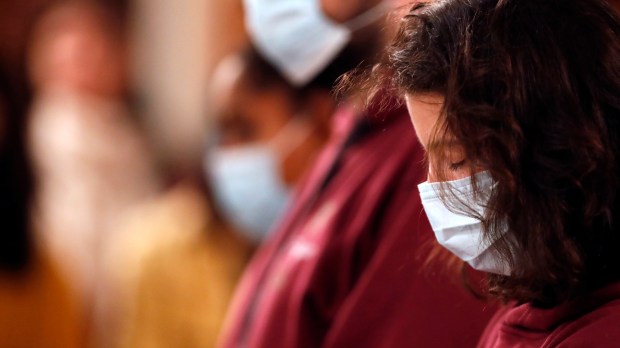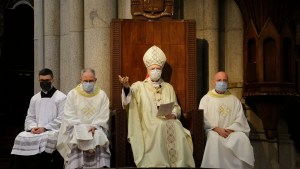A survey conducted in late 2020 has revealed a correlation between religiosity and decreased levels of stress over the course of the pandemic. The Catholic University of America study questioned 1,600 U.S. adults, 40% of whom were Catholic.
Maintaining or increasing one’s religious practice was found to be a boon to mental health during the pandemic. Respondents who placed a high importance on faith reported a greater sense of well-being. Less than 20% of respondents suggested their mental health declined.
Attendance
Attendance at in-person religious events was the area of sharpest decline, due to church closures. Private religious practice, however, was found to have flourished during the pandemic. As much as 35% of respondents said they have increased the frequency of prayer in the last year. Additionally, study of scripture increased by 19%.
Even with limited church attendance, 15% of respondents said they have increased their attendance at religious services. This group alsotended to be those who said they rarely attended services prior to the pandemic. They were also found to have the lowest mental health scores.
Online services
Online services were not only found to be effective, but many suggested that the medium should remain in use. Catholic Philly reports 44% of respondents suggested that they would combine in-person and online services, moving forward. A slim minority suggested they would only attend online services.
In a May 21 webinar hosted by the Catholic University of America, Scott L. Thumma, professor of sociology of religion at Hartford Seminary, suggested that online services should stay. He noted that those who have responded well to online services may stop attending any services should they disappear. He said:
“There’s a strong push now to not go back to face-to-face.” Worshipers “won’t like it if that goes away. In fact, they may drop back off.”
Surprisingly, a fifth of those questioned reported feeling closer to their faith community. This suggests that the efforts of the Church to keep the faithful connected have been somewhat successful. Further, a solid quarter of the responses suggested religion had become more central to their daily lives.
Pandemic precautions
When it comes to returning to in-person services, the vast majority believe that pandemic safeguards should stay. As many as 82% of respondents said Mass-goers should continue to wear masks and 81% said they should maintain social distance. Over 60% believed that the lockdown was justified and only 4% believed that the world pandemic was a hoax.


